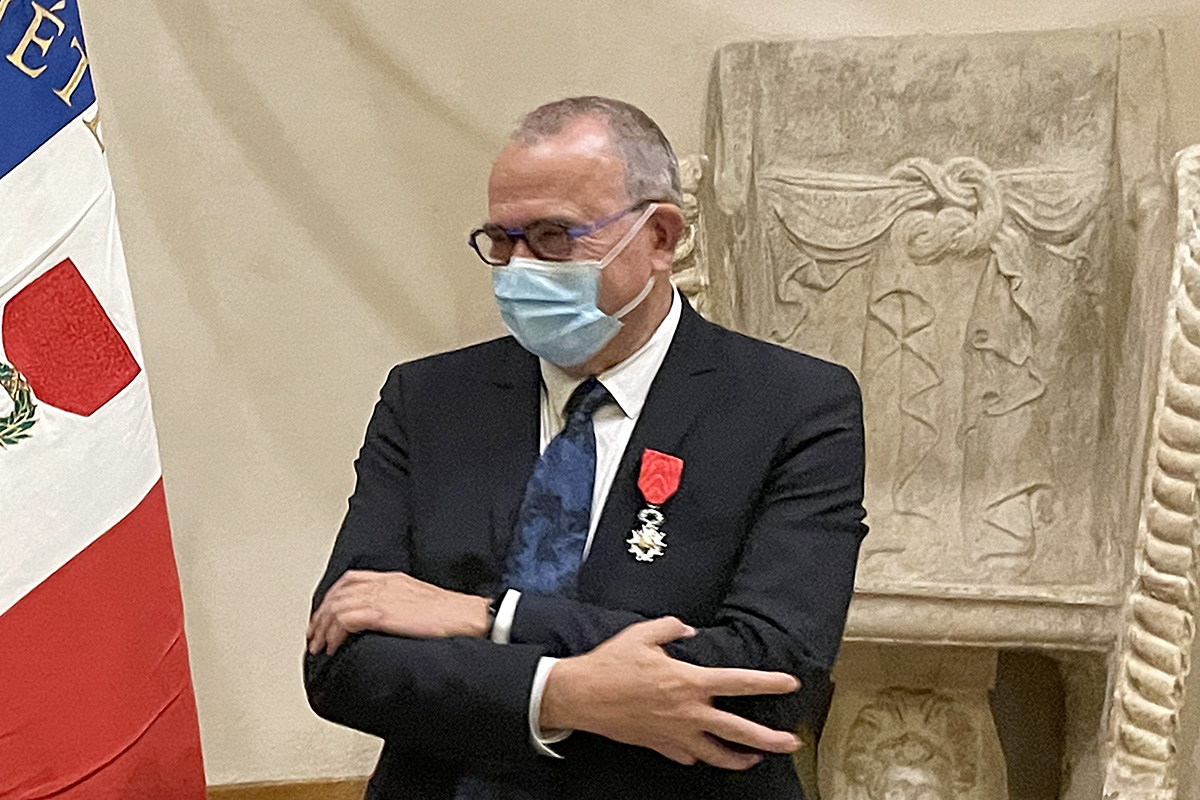Infectiology with a passion
He was one of the pioneers in the fight against AIDS in the 1980s, and a leading figure in the fight against Covid-19. A look back at a career in infectiology that earned Professor Jacques Reynes the Chevalier de la Légion d'Honneur on August 27, 2021.
He came very close to becoming a physics teacher. After a faultless career at the Collège and Lycée Joffre in Montpellier, Jacques Reynes was considering this option for a while. But the sirens of medicine were already singing in his ears, and it was a Cornelian choice for him... In the end, he opted for medicine, and today many of his patients can congratulate themselves.
After studying medicine at the Faculty of Montpellier, where he was interested in "everything but surgery", Jacques Reynes quickly switched to infectious diseases, under the influence of André Bertrand, then Professor of Infectious Diseases and Therapeutics. After a detour to Nice to complete his residency, the practitioner returned to his home town and in 1985 became assistant chief of clinic at Montpellier University Hospital.
Dark days
We were in the 1980s, "a dark period", recalls Jacques Reynes, evoking the appearance of a new disease that left everyone perplexed: AIDS. " We were dealing with difficult situations that didn't end well," recalls the infectiologist, who decided to tackle the problem head on. " I wrote my medical thesis on the prevalence of HIV among drug users, a pioneering subject at a time when tests were not yet commercially available".
Today, he is in charge of the Department of Infectious and Tropical Diseases at Montpellier University Hospital, where he set up the entire HIV care network in Montpellier, from consultations to day and home hospitalization. At the same time, the practitioner, appointed professor in 1997, was heavily involved in the evaluation of new antiretroviral and antifungal treatments, which led to his inclusion in expert groups drafting recommendations for the care of HIV patients.
Triple mission
For Jacques Reynes, clinical research is an absolutely fundamental part of his job. " Our mission is threefold: teaching, to train young people and share our experience; research, to optimize treatments; and care, to ensure that patients benefit from the best possible care". And he is adamant: "If some patients are still alive today, it's thanks to these innovative treatments". The need for innovation is all the greater in view of the emergence of drug resistance, which Jacques Reynes reminds us is "a fact of life in infectious diseases".
And while AIDS treatment today "is less a matter of life and death", new molecules and strategies are still being evaluated. The challenge? " To improve patients' quality of life, in particular by spacing out treatments," explains Jacques Reynes.
Immunocompromised patients
Jacques Reynes and his team have 22 hospital beds in the new André Bertrand Infectious and Tropical Diseases Department building, where they fight bacteria, viruses, fungi and parasites. "One pathology that has not disappeared is tuberculosis. Between population movements, co-infections with HIV and resistance to anti-tuberculosis drugs, it's a real problem.
Another major challenge is the management of immunocompromised patients, who are highly susceptible to infection. " Transplant patients, those with malignant diseases or inflammatory diseases requiring immunosuppressive treatment, all have a higher risk of infection," warns the specialist.
Recognition
This requires a wide range of skills, all of which Jacques Reynes has "covered in every field". In fact, for the past 4 years, infectiology has been recognized as a specialty in its own right. Academic recognition, followed more recently by recognition from the general public. " This is one of the positive aspects of Covid: the general public has become aware of the risk - obvious to us - of contagious viral respiratory diseases".
Infectiology, a "real passion" for Jacques Reynes, is "a fast-moving discipline that demands attention and responsiveness". It's a discipline that he has helped to forge over the years, a contribution that had already earned him the Palmes Académiques before he was awarded the Legion of Honor by Philippe Augé, President of the University of Montpellier, on August 27, 2021.
